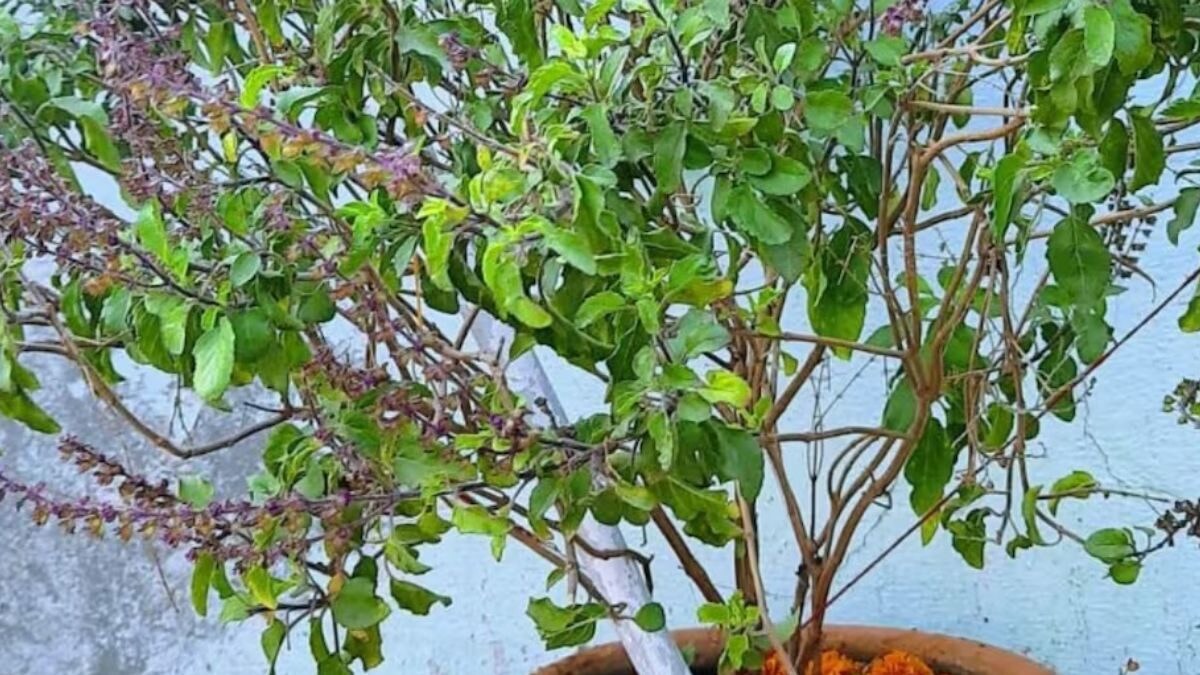Tulsi Vivah 2023: 4 Steps For The Couples To Experience Marital Bliss

Mangalashtak must be chanted on the day of Tulsi Vivah.
Sixteen shringaar items should be given to a married woman as well on the next day of Tulsi Vivah.
Tulsi Vivah, the ceremonial marriage between the revered Tulsi plant (holy basil) and the Hindu deities Lord Vishnu or Krishna, is approaching on November 24, ushering in a day of divine union and sacred celebrations. Occurring annually on the Dwadashi tithi of Shukla Paksha in the Kartik month, Tulsi Vivah holds profound significance in Hindu traditions, believed to bestow happiness, peace, and prosperity upon families.
Renowned astrologer Pandit Rishikant Mishra Shastri from Unnao, Uttar Pradesh, has offered valuable insights and recommended measures to enhance marital bliss during the auspicious Tulsi Vivah.
Mangalashtak Chanting:
Mangalashtak, when chanted on the day of Tulsi Vivah, is believed to bring stability to relationships and usher in moments of happiness. The sacred verses, when recited with utmost devotion, contribute to the harmony in married life.
Offering Shringaar Items to Tulsi:
Devotees are encouraged to offer sixteen shringaar items to Goddess Tulsi on this auspicious occasion. This ritual symbolizes worship and is considered propitious. Couples seeking fertility are particularly urged to pray to Goddess Tulsi with devotion during this time.
Shringaar for Married Women:
On the following day of Tulsi Vivah, married women are presented with sixteen shringaar items, reminiscent of wedding essentials like red chunari, bangles, vermilion, bindi, and red saree. This tradition carries cultural significance and emphasizes the sanctity of marriage.
Ghee Lamp Lighting:
Lighting a ghee lamp in front of Goddess Tulsi is deemed auspicious. Following this, sprinkling gangajal on Tulsi leaves is believed to invite happiness, prosperity, and peace into one’s life.
Tulsi Vivah goes beyond individual households, resonating in temples adorned with lights, hosting bhajans, and witnessing charitable acts such as food distribution to the less fortunate. As the sacred day approaches, Hindu communities prepare to embrace the divine union of Tulsi and the divine, seeking blessings for harmonious and joyful family lives.

Atul Tiwari is a seasoned journalist at Mumbai Times, specializing in city news, culture, and human-interest stories. With a knack for uncovering compelling narratives, Atul brings Mumbai’s vibrant spirit to life through his writing.





